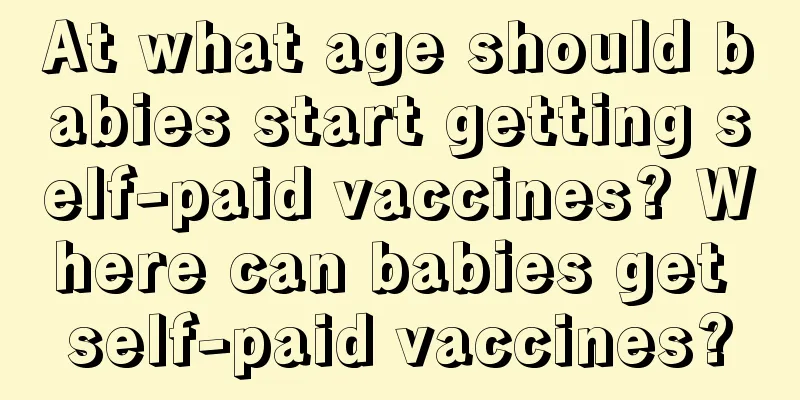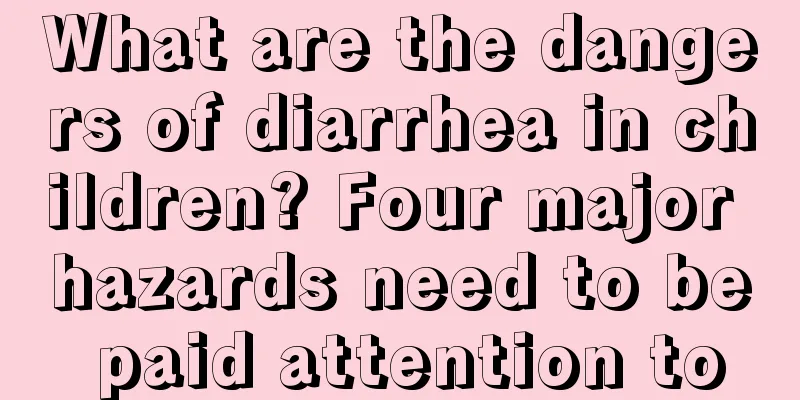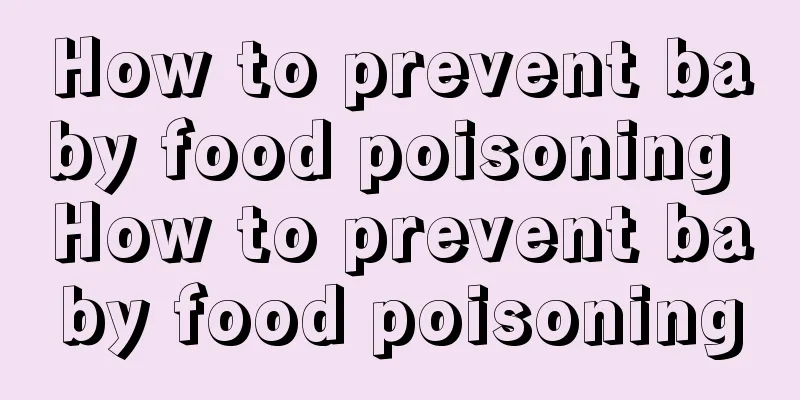At what age should babies start getting self-paid vaccines? Where can babies get self-paid vaccines?

|
For the safety of your baby, in addition to the vaccines that must be given, parents should also take their babies to get self-paid vaccines. So at what age is it best for babies to start getting self-paid vaccines? At what age should babies start receiving self-paid vaccines?Generally speaking, children should start receiving self-paid vaccines after the age of one, such as the chickenpox vaccine. There are also many other self-paid vaccines such as the flu vaccine. Where can I get my baby's vaccines at my own expense?Infants can generally be vaccinated at local health and epidemic prevention stations, community hospitals or tertiary hospitals. For infants who are getting vaccinated for the first time, parents need to bring their ID cards, birth permits and other certificates. After the first vaccination, the doctor will issue a new "Vaccination Certificate" to the baby, and the baby can be vaccinated at the time specified on the vaccination certificate. Should I pay for my baby's vaccinations?We all know that free vaccines are vaccines that must be vaccinated by the state, and there are corresponding vaccines for babies at every month of age. If the vaccination is not on time, it may affect the baby's admission to nurseries, kindergartens, schools, and even going abroad. Self-paid vaccines are voluntarily chosen and paid for by parents. Therefore, some parents think that Class II vaccines are not important and can be taken or not. In fact, Class II vaccines are a powerful supplement to free vaccines and can provide children with more extensive protection. If the family's financial situation allows, it is recommended that everyone try to vaccinate their children. How long can baby vaccinations be delayed?Vaccinations should be given on time. If they must be postponed, the postponement should be as short as possible. Generally, it is better to postpone vaccinations for no more than one month. Vaccinations are best given when the child is completely healthy. If the child has a fever, diarrhea, or severe eczema, it is best not to vaccinate. The potential risks are very high. If the child is sick and has not recovered, do not consider the time issue. No matter how long it has been since the vaccination date, do not vaccinate without the doctor's permission. Children need to receive many vaccines. If the previous vaccines are postponed for too long, the schedule of the subsequent vaccines will be disrupted, and the entire vaccination plan will be disrupted. All of them need to be readjusted, wasting more time. If too many vaccines are postponed, the child will not get antibodies to defend against diseases in time, and the risk of infection will be greatly increased. It is very likely that the disease will be transmitted because of the failure to receive vaccines in time. |
<<: At what age can babies drink pasteurized milk? Is it good for babies to drink pasteurized milk?
Recommend
What tests are needed before artificial insemination? When is artificial insemination?
Artificial insemination is the process of injecti...
How to educate a disobedient child? Should a disobedient child be spanked?
Educating children is a very complicated and long...
How to dress during the confinement period in autumn? Things to note during the confinement period in autumn
With the arrival of the Beginning of Autumn, autu...
How to massage your baby to make him grow taller? Easy massage helps him grow taller
During the infant and toddler period, babies need...
Can dandelion remove fetal toxins? What can I eat to remove fetal toxins?
Dandelion is a plant that many people like to pla...
What is a baby comforter? Why do babies need comforters?
I wonder if you mothers have noticed that babies ...
What should babies eat if they have poor immunity? What should I do if my baby has poor immunity?
Generally, babies are more likely to get sick whe...
What is the size of a crib? Does the smell of wood in a crib have any effect on newborns?
Usually most mothers will buy a crib for their ba...
How to gradually reduce the frequency of breastfeeding? Distracting attention is very effective
Many mothers are troubled by weaning. They worry ...
Can I breastfeed while I have my period? Can I have my period while I am breastfeeding?
Breastfeeding during breastfeeding has become the...
Can dental floss remove dental plaque? What is the role of dental floss?
Dental floss is said to be used to clean the dirt...
Can tea oil be applied to newborn babies with flatulence? Is camellia oil effective for babies with flatulence?
It is a common phenomenon for newborns to have fl...
How to treat postpartum urinary incontinence and recover? What are the causes of postpartum urinary incontinence?
Many mothers who have given birth should know tha...
Why does my baby always pull his ears? 6 reasons for pulling ears
Taking care of children is a very hard job, and w...
Can I wear the Kao steam eye mask overnight? Features of the Kao steam eye mask
In our daily life, many people like to wear Kao s...









